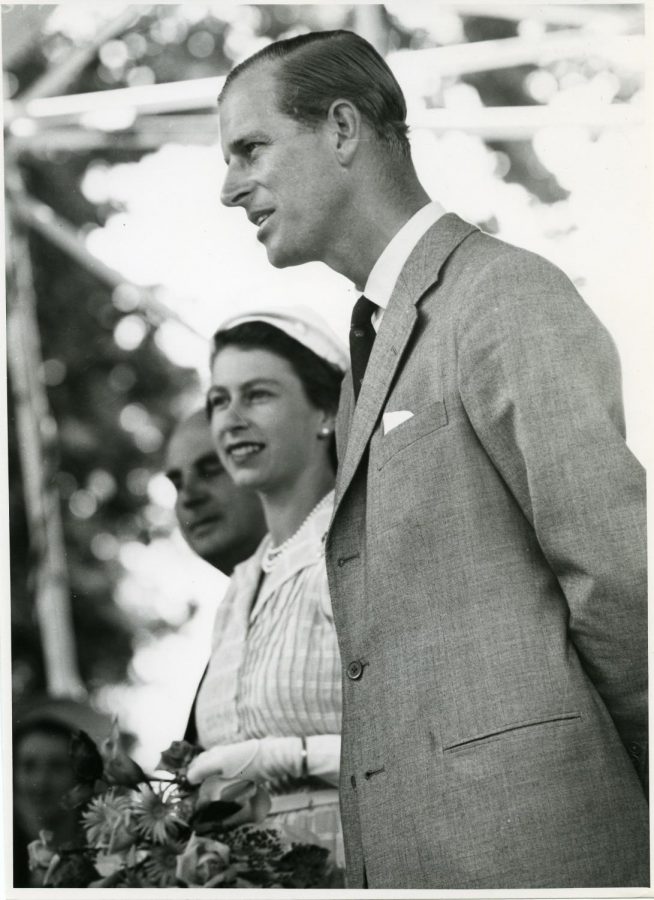The Life, Death, and Legacy of Prince Philip
To the knowledge of many, the well-loved Prince Philip of Edinburgh died a few weeks ago on April 9. He lived a long life of serving his country, starting with his birth on June 10, 1921.
The Prince was born in Corfu, Greece to Princess Alice of Battenberg and Prince Andrew of Greece and Denmark. He was the youngest of five children and had four sisters, Princess Cecilie, Princess Sophie, Princess Margarita and Princess Theodora.
In 1934, when Phillip was 19, he met the 13-year-old Queen Elizabeth II. They corresponded through letters and became loyal pen-pals. Thirteen years later, on November 20,1947, they were married at Westminster Abbey.
Also important was his impressive naval career. In 1939, he enrolled in the Royal Naval College Dartmouth. He would go on to be named the college’s “Best Cadet”. In 1947 he became a naturalized British citizen and dropped all of his former titles. In November of 1948, Prince Charles was born, two years later in 1950, Princess Anne was born, 1960 Prince Andrew was born and in 1964, Prince Edward was born.
The son of parents who had been exiled from their country in a coup, this influence in his life helped guide his influence in the British monarchy. He shut down the palace kitchen that was only for the royals, and he set up meetings between the queen and people of a diverse level of backgrounds. According to BBC.Com, he “had intercoms put in so that servants no longer had to ferry written messages to his wife.”
He also founded the Duke of Edinburgh award, encouraging young children to gain awards by performing in outside interests and activities as well as volunteer work. To this day there exists a religious sect called the Prince Philip movement of people who believe Prince Philip is the man from a traditional legend from the Katson people from the island Tanna in Vanuatu.
To address the factual of his legacy, as well as the positive, you must also address the negative when an important person and loved one has died. His legacy is admittedly complicated by his history of an “outspoken” sense of humor that has caused controversy. Time and time again, he’s been criticized for arguably reckless commentary during meetings with foreign officials.
Though known by his loved ones and most of his country as kind and loyal to his queen and thus, the nation, he is also known for insensitivity towards those of other cultures at nearly every turn. From telling then Nigerian president Olusegun Obasanjo that his traditional clothing looked like he was, “ready for bed,” to asking a group of Australian Aboriginals if they “still throw spears at each other.” He also stated during a royal visit to China, “If you stay here much longer, you’ll all be ‘slitty-eyed.’”
In 2008-2021, Prince Philip faced many medical challenges. Chest and bladder infections, a blocked artery, surgeries and multiple long-lasting visits to the hospital. On the 9 of April, England said goodbye to their Prince and Duke of Edinburgh of 69 years. The Prince died at age 99. He spent his final week with Queen Elizabeth at Windsor castle.
His funeral was designed by himself down to the letter and took place at St. George’s chapel. Only 30 of Phillp’s family and grandchildren attended. Prince Phillp had selected hymns and music. The royal family has released many statements about his life and his effect on those close to him, as well as the entire country. On April 23, the Queen’s period of mourning will be over, but Prince Philip’s life will not be forgotten.
Image courtesy of Wikimedia Commons.
Facts courtesy of cnn.com, independent.co.uk, mirror.co.uk, vanityfair.com and wikipedia.org.






